Given that we have been spending more time at home this past year, many of us have found comfort in gardening or caring for indoor plants. With all of the health advantages, gardening is a wonderful way to decompress and better yourself while staying in the comforts of your own house. When used in gardening, coco coir may greatly enhance the growth of flowers and other plants. It is a sustainable and environmentally beneficial substitute for peat moss.
WHAT IS COCO COIR?
Coconut husks are used to make the growth medium known as coco coir. The world has just become aware of the countless opportunities these husks provide, after formerly being viewed as a waste product.
After processing, coconut coir is typically utilized in horticulture for three purposes: coconut fiber, coconut peat (also known as pith), and coconut chips, which differ in size and texture.
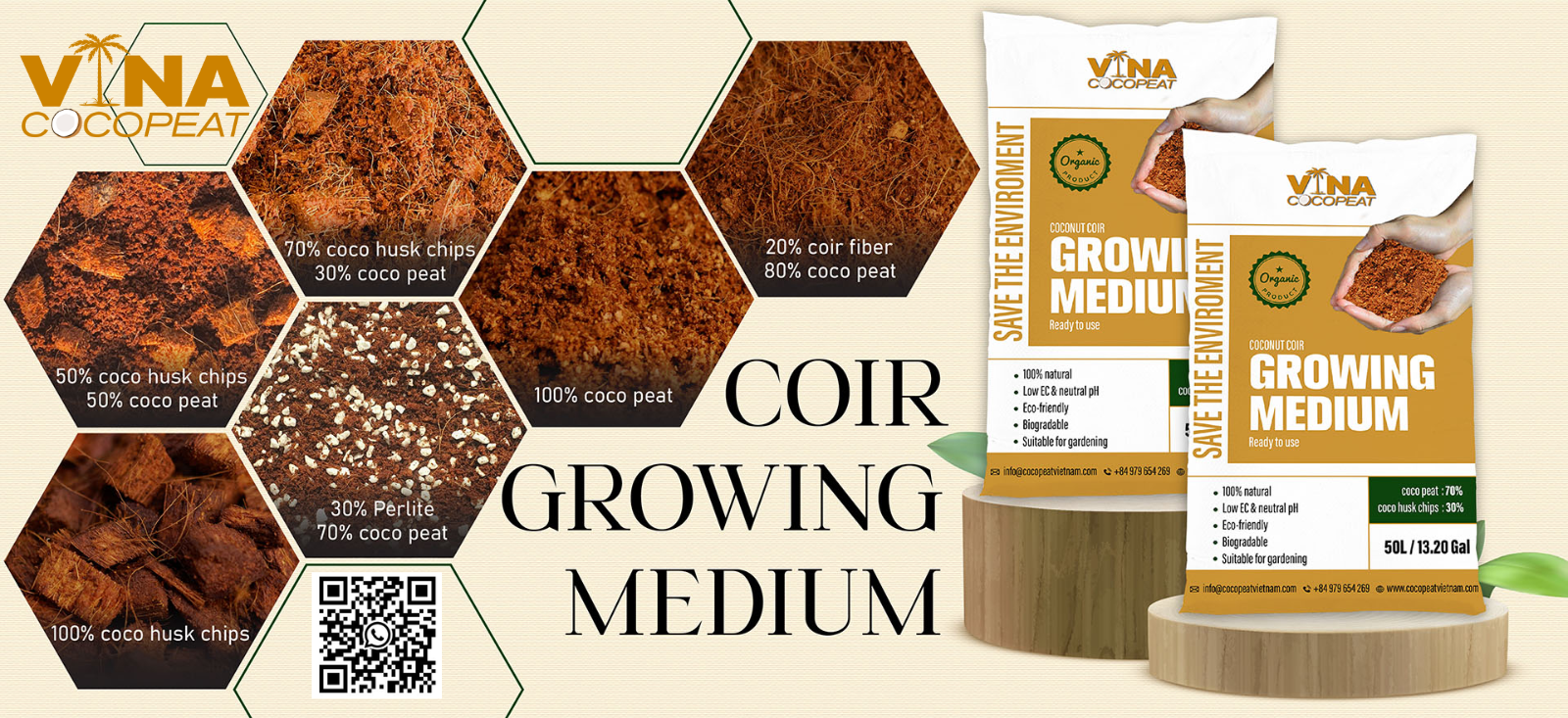
HOW TO USE COCO COIR IN YOUR GARDEN?
All varieties of coco coir are an excellent replacement for composts that contain peat. It may be used for a wide range of horticultural items both indoors and outdoors. Compared to conventional composts and soils, coco coir offers superior aeration and water retention, making it a more suitable option for indoor gardeners.
PREPARING COCO COIR FOR USING GARDEN PLANTS
Typically, coco coir is supplied as a dehydrated brick. This makes transportation soil possible in a more cost-effective and eco-friendly manner than with big, heavy sacks.
When the brick has rehydrated, which is typically five to seven times its initial size, place it in a container big enough to store it before using it. Pour three or four liters of warm water over it. Give it a minimum of 15 to 30 minutes.
When it’s prepared, fluff the coir until it has the consistency of ordinary dirt.
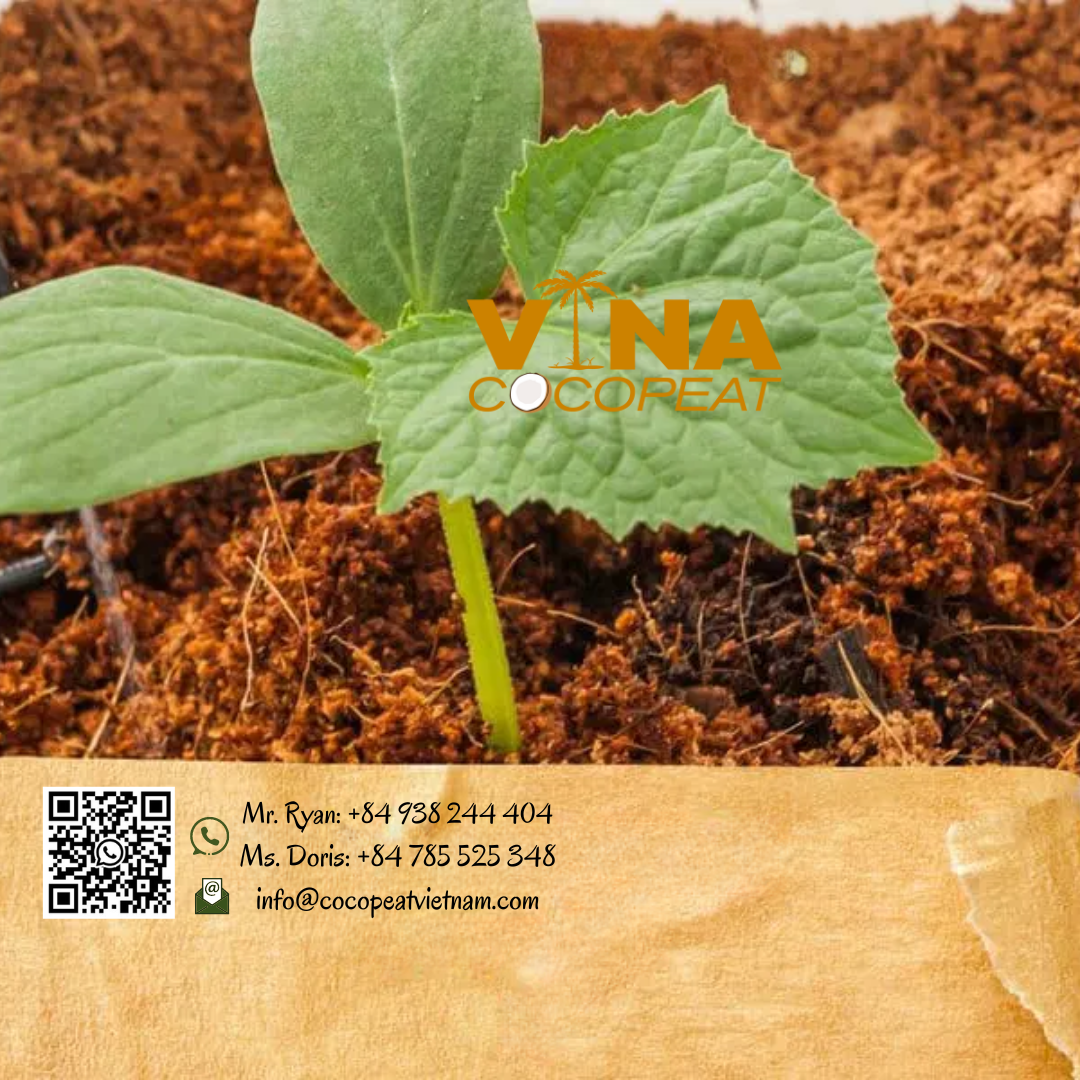
COCO COIR PROPERTIES
Coir is sterile by nature. It will not support weeds, so nothing undesirable will develop there. Although coco coir may resemble soil, it does not inherently contain soil nutrients. It requires enrichment with nutrient-rich soil or compost. Alternatively, you might add plant food that is high in nutrients.
COCO COIR IN YOUR SOIL
Mixing coco coir into existing garden soil can be beneficial to plants. The coir, which provides a varied combination of water retention and natural drainage, will relax the texture of clay soil and reduce waterlogging.
It will do the reverse with sandy soil, helping it to store more water.
Mixing long-fiber coconut coir with coco peat or other substrates aids in the aeration of compacted soil structures, keeping the ground fresh and fruitful for root development.
COCO PEAT FOR INDOOR PLANTS
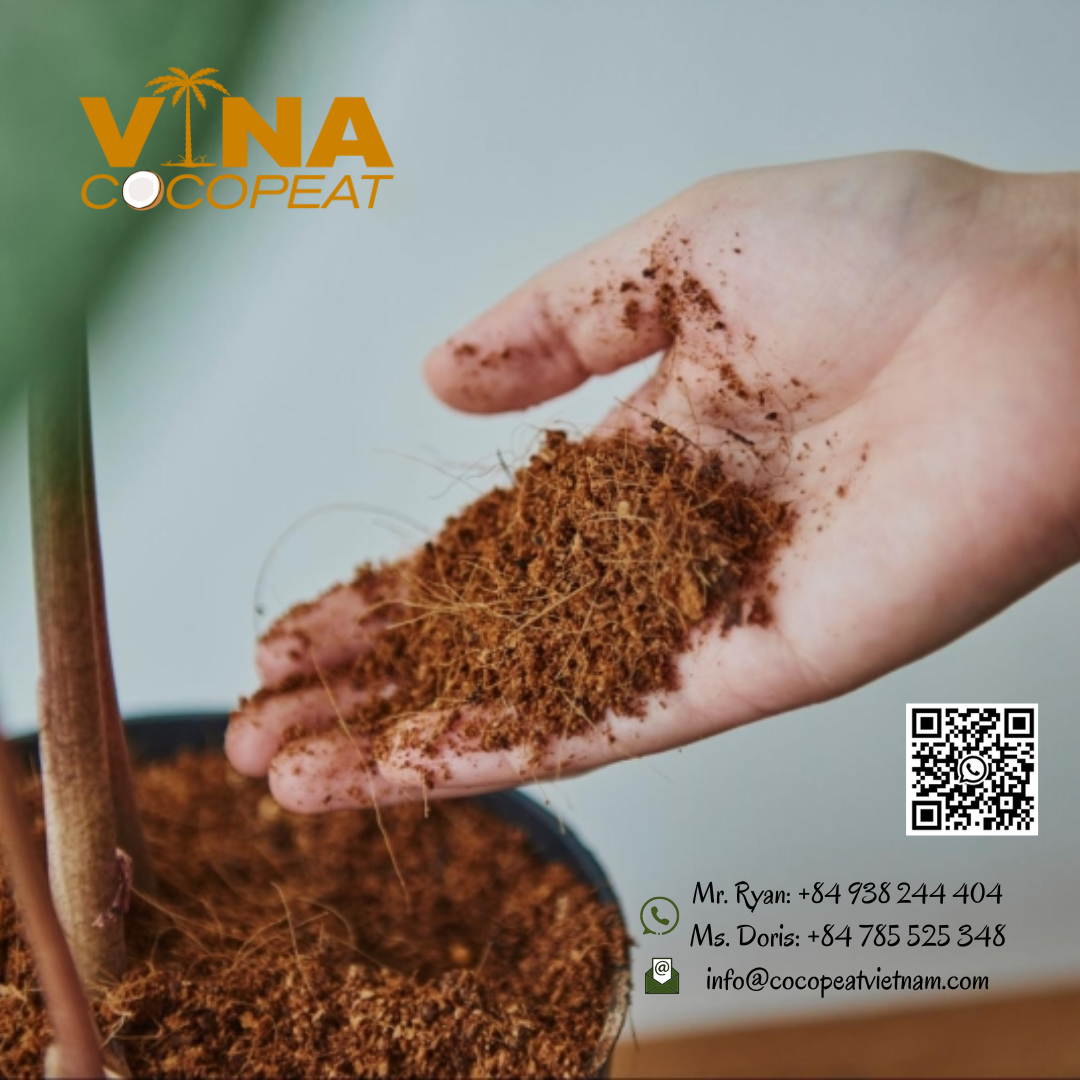
Coco peat is a robust growth medium for indoor plants. It may contain more water than typical soil while also retaining liquid more readily. This implies that roots will be well hydrated and aerated, lowering the likelihood of root rot.
One of the characteristics that makes coco peat an excellent choice for hydroponic plants is its slow breakdown rate. Very few nutrients are discharged into the soil, ensuring that crucial nutritional balance.
If you buy coco peat for indoor growth, it’s best to go with the lowest size choice because of the yield once prepared.
USING COIR AS A GROWING SUBSTRATE FOR SUCCULENTS
Watering plants native to dry regions should be done with caution since coco coir absorbs water. It is simple to mistakenly overwater desert plants. Allow enough time between waterings for the roots to dry out, then water less often.
Mix cocopeat with coarser materials like sand or pumice to mimic the plant’s native desert soil. Coco coir with perlite is a great choice.
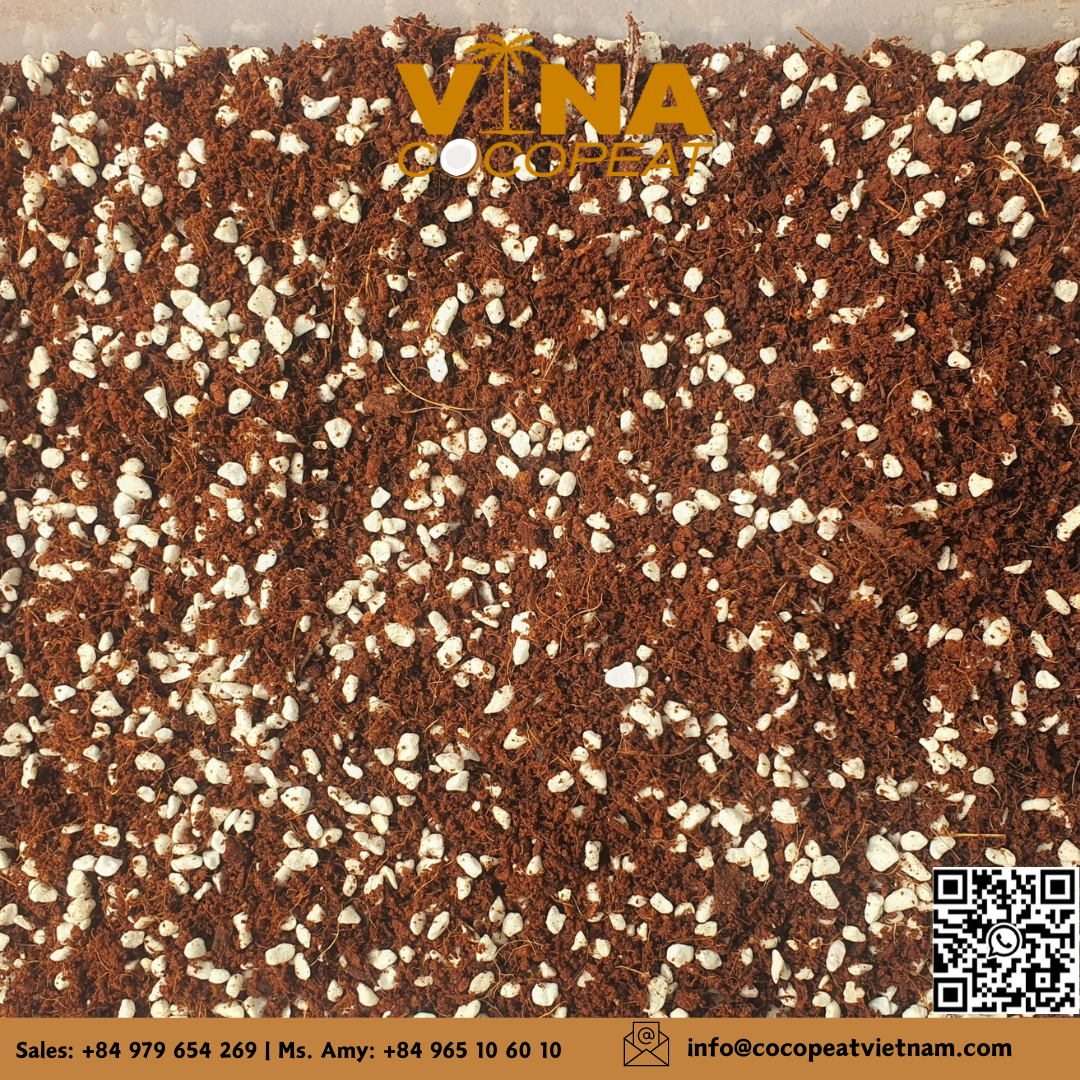
BENEFITS OF USING COCO COIR
Coco coir has a slow biodegradation rate. Once a growing project is completed, just rinse it off and reuse it for your next project.
Unlike peat moss, coco coir is hydrophilic. This implies it can be readily rehydrated or rewetted, even if it is entirely dry.
The use of coco coir extends to its usage in composting. Coir contains beneficial microorganisms, such as the Trichoderma fungus, which can create enzymes that speed up composting.
It also retains nutrients produced by other compost materials as they decompose, resulting in a nutrient-dense finished product.
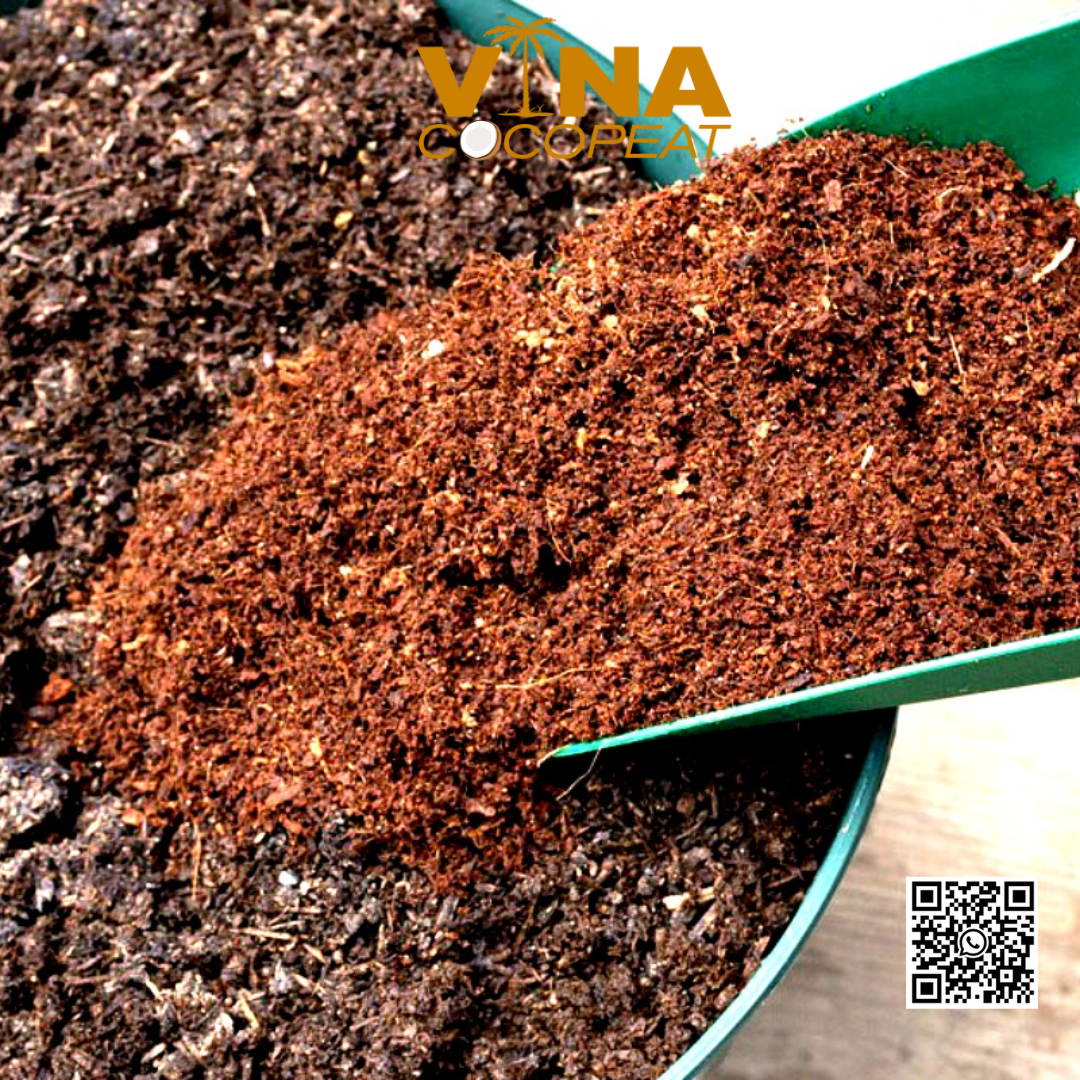
OBTAINING COCO COIR FOR YOUR GARDENING NEEDS
Coco coir is better for the environment, naturally bacterial and fungal-resistant, and lasts longer in soil than peat-based composts. It can also be stored for several months between uses without decomposing, great for seasonal growing!
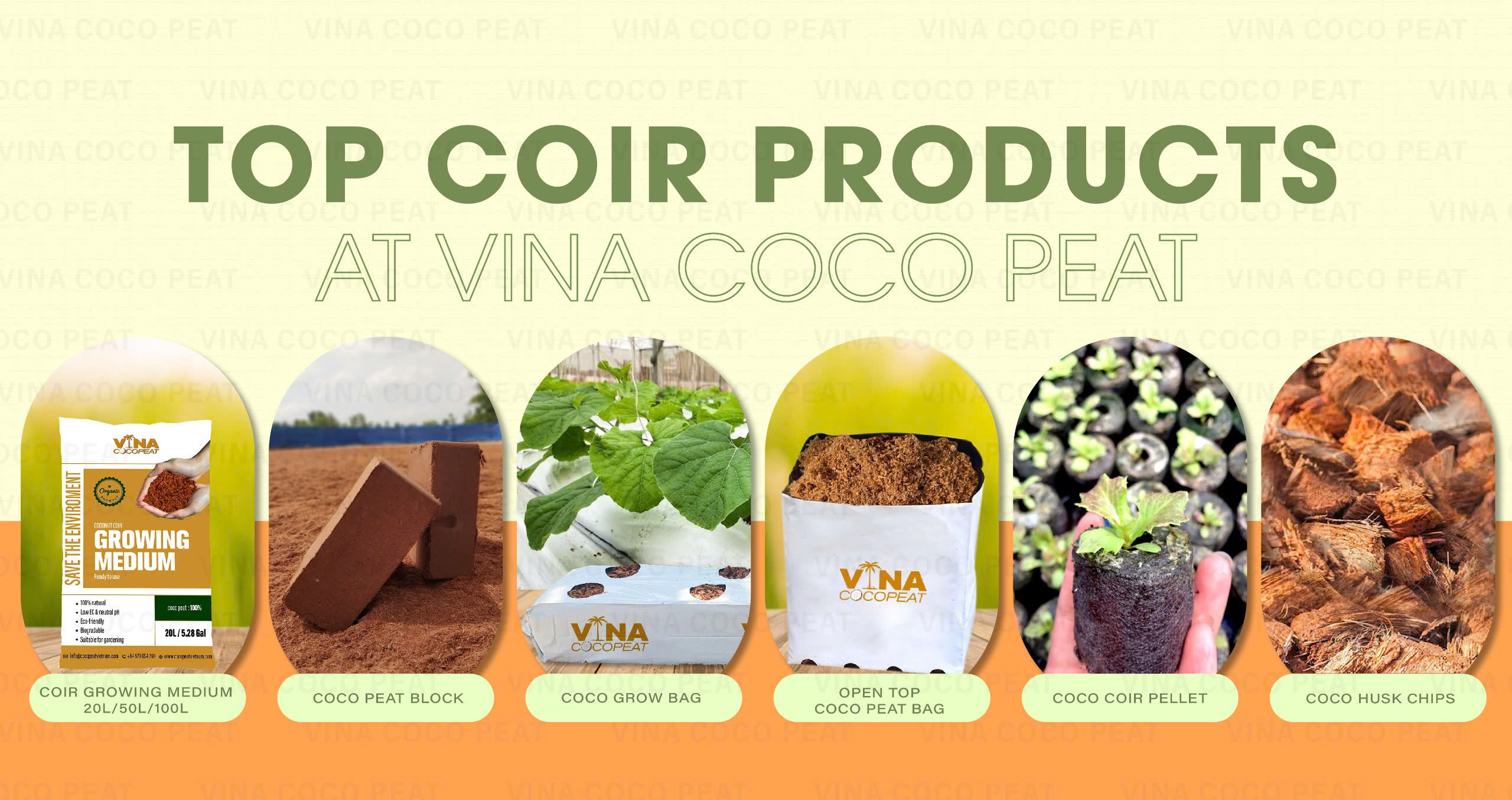
Ready to mix coco coir with your green-fingered ambitions? At VINA COCO PEAT, we provide a wide range of coco coir-derived composting materials, including peat bricks, chips, and substrate mixes, etc.
Feel free to contact with our desicated sales team. We are online 24/7 to server customer.
Ms. Doris: +84 785 525 348 (ZALO, WHATSAPP, WECHAT, LINE)
Mr. Ryan: +84 961 071 137 (ZALO, WHATSAPP, WECHAT)
한국 영업 담당자: +84 969 273 598 (Ms. Lan)
中文: +84 397 317 401 (Ms. Vi)
Email: info@cocopeatvietnam.com – www.cocopeatvietnam.com
